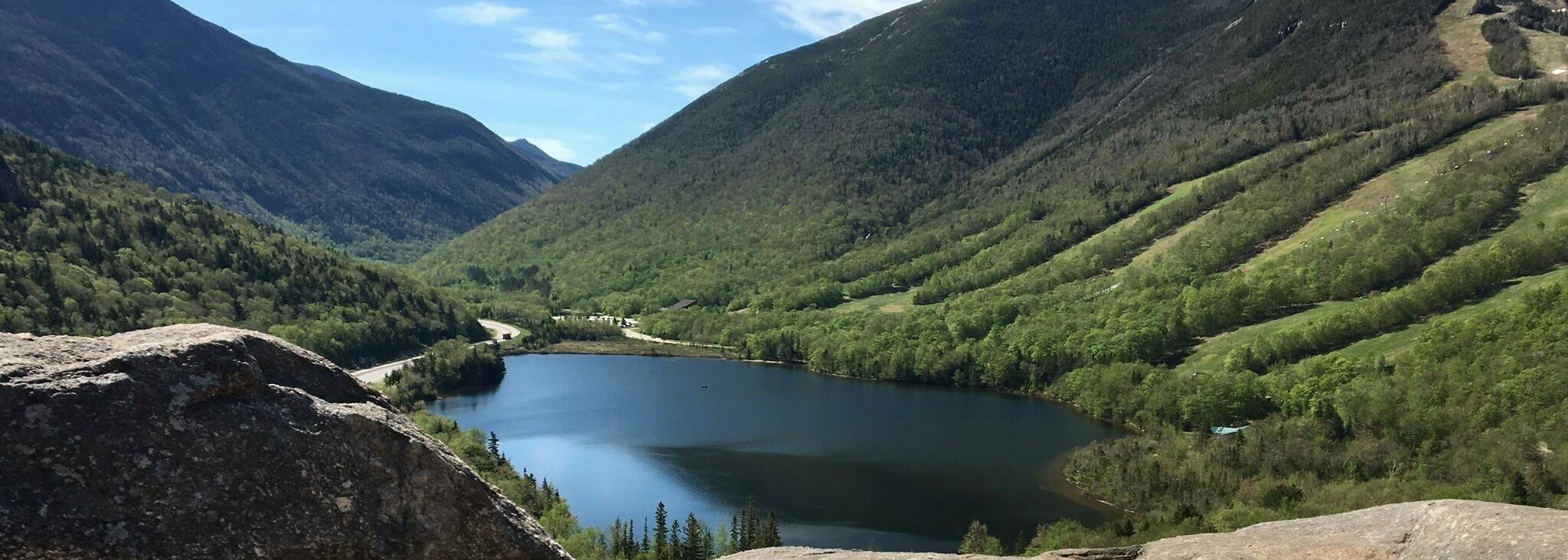Thanks to the dedicated work of NH LAKES’ Lake Hosts, many of New Hampshire’s most popular and pristine lakes have stayed protected from invasive species.
Why It Matters:
Invasive species—like milfoil and Zebra mussels—aren’t just nuisances. They harm our environment, property values, the local economy, and tourism.
How They Spread:
These unwanted plants and animals often travel from one lake to another by clinging to boats and trailers that haven’t been properly cleaned, drained, and dried.
How Lake Hosts Help:
Our Lake Hosts are on the frontlines, offering voluntary boat inspections at launch sites throughout New Hampshire. They’ve helped stop six different invasive species this summer alone—just by helping boaters inspect their boats before hitting the water.
Keep reading to learn about the ‘saves’ made in the summer of 2025.
Close Call at Granite Lake
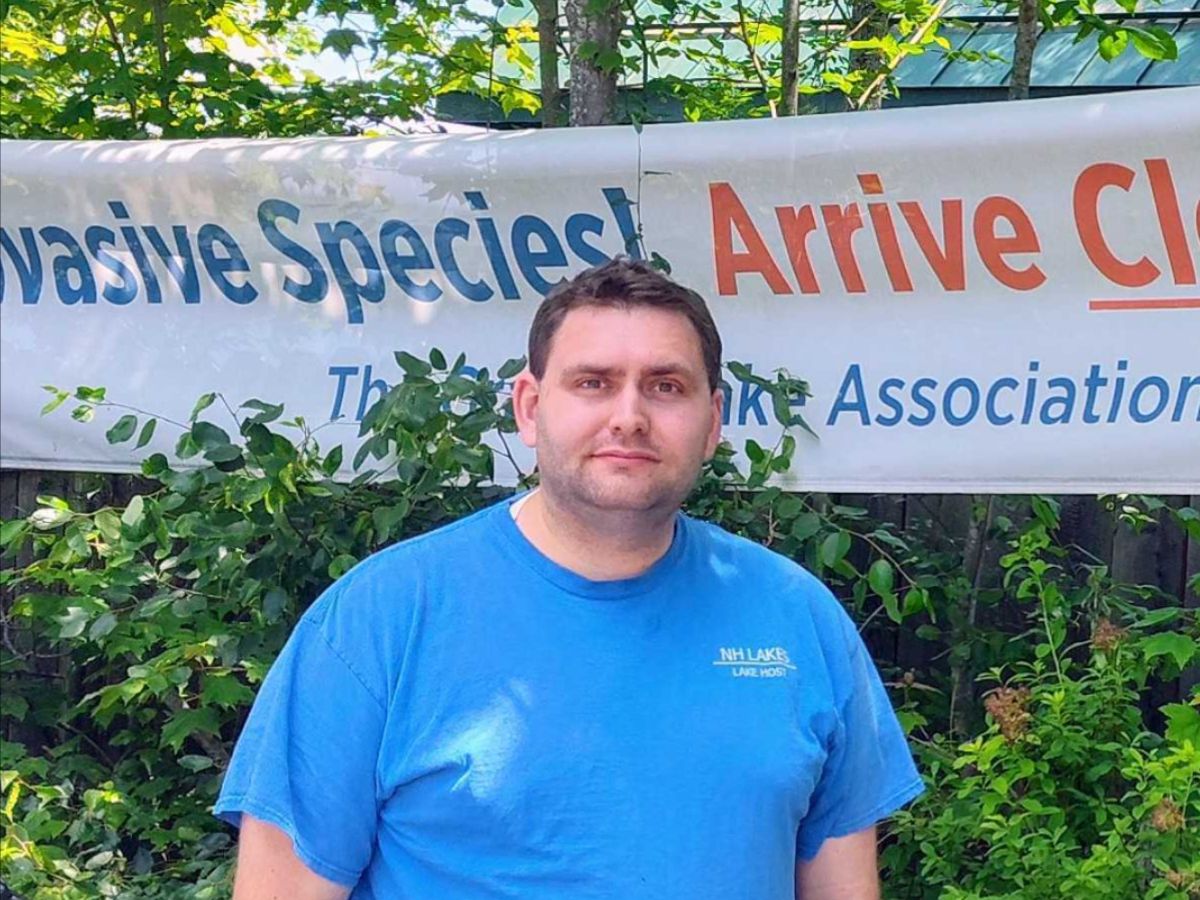
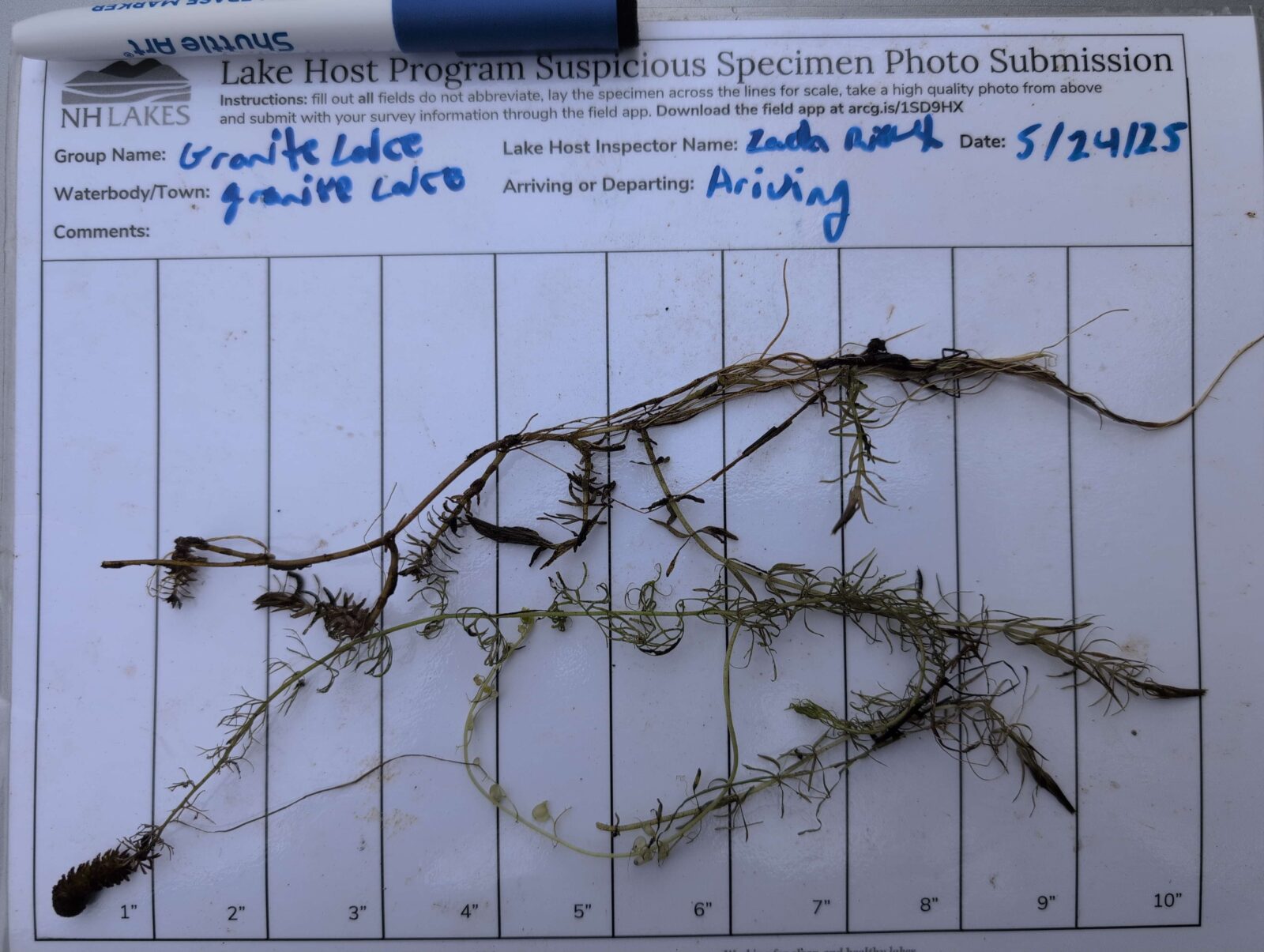
Thanks to Lake Host Zachary Rioux’s sharp eye and quick action, Granite Lake narrowly avoided a potential invasion.
Zachary spotted a suspicious plant tucked away in a hard-to-see spot on a boat trailer arriving at the lake. After careful removal and expert review, the plant was confirmed to be alarmingly similar to hydrilla—one of the most aggressive and destructive aquatic invasive species in the country.
Hydrilla spreads fast, chokes out native plants, disrupts ecosystems, and is incredibly difficult—and expensive—to control. If it had made it into Granite Lake, it could have done serious damage.
Thanks to Zachary, Granite Lake remains free of aquatic invasive species. One moment of vigilance made all the difference.
A Win for Beaver Lake
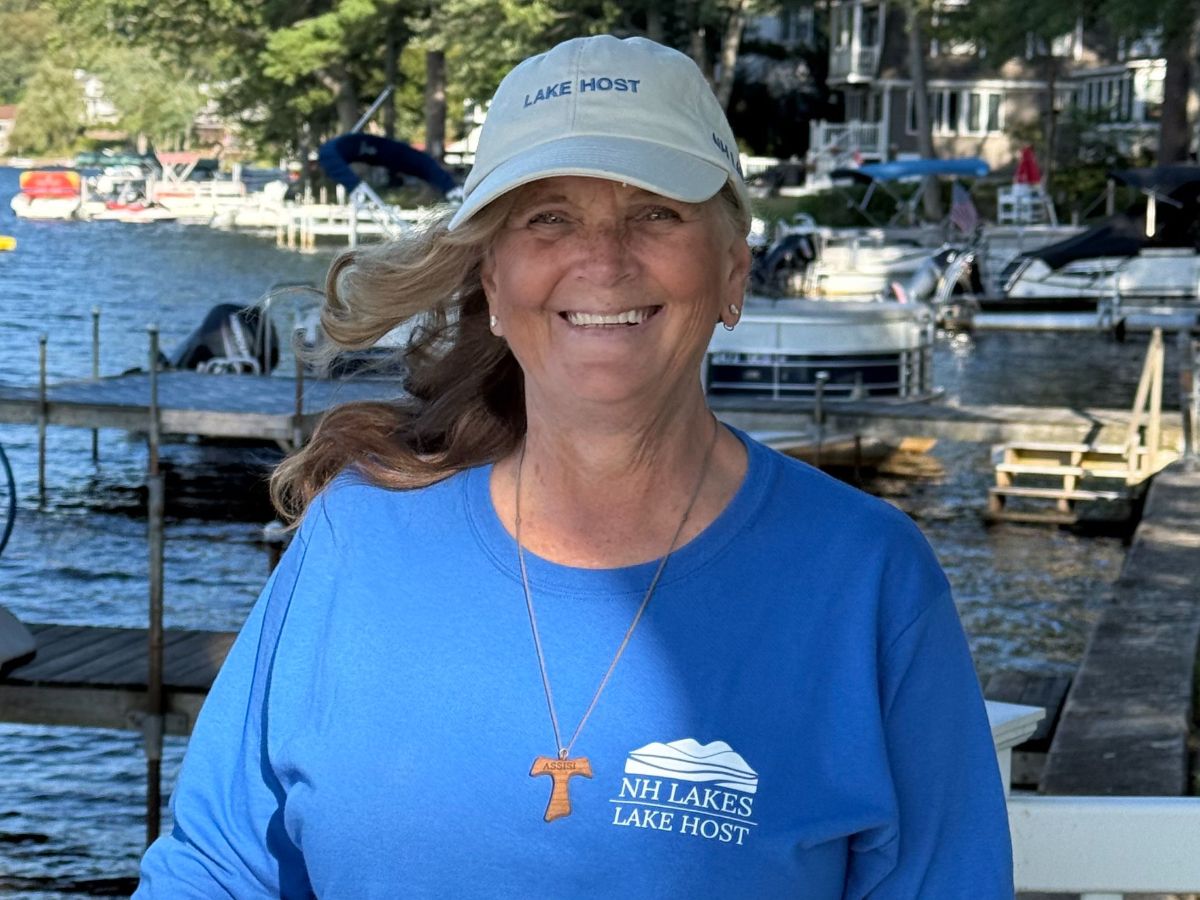
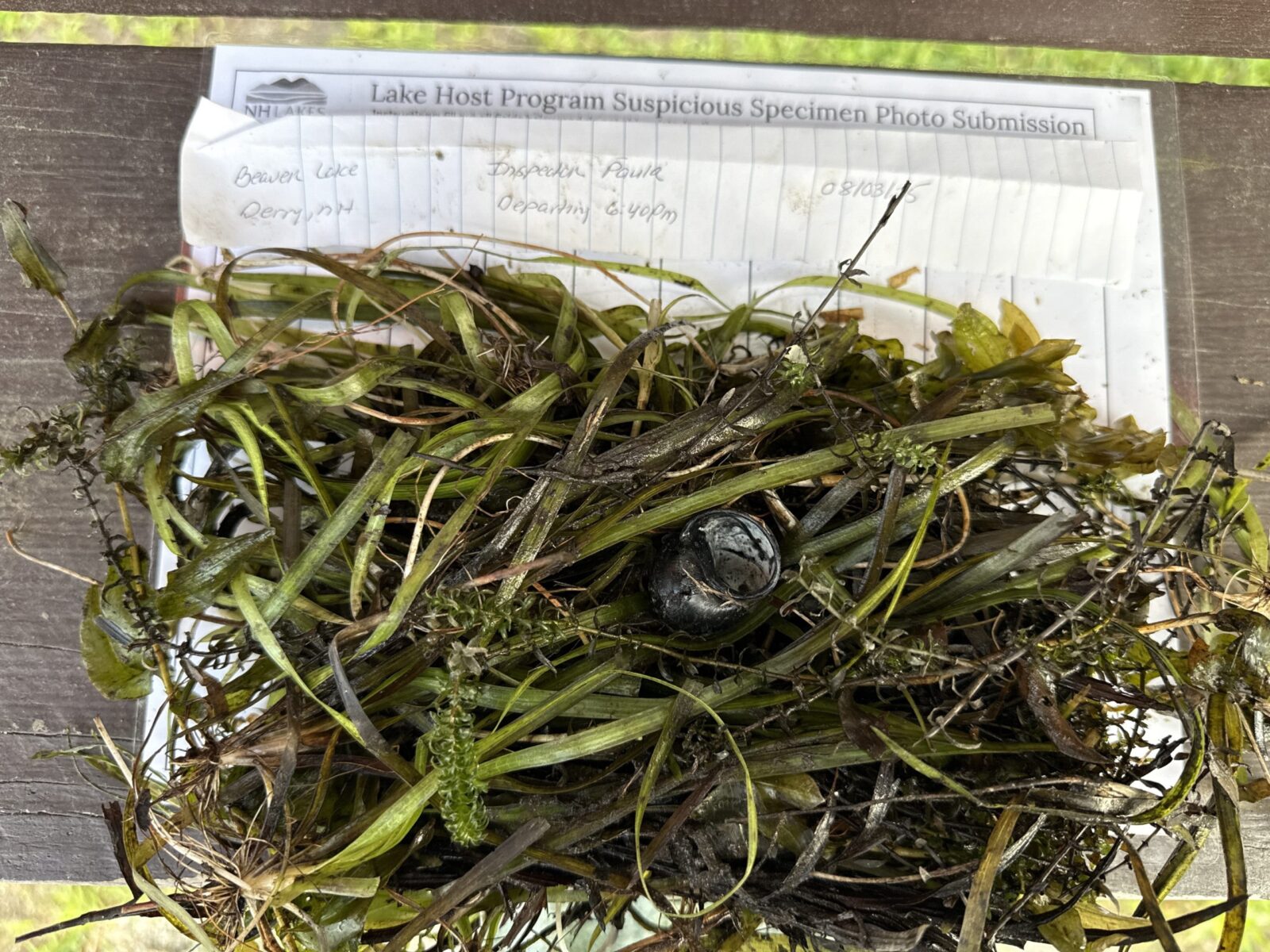
Lake Host Paula Studer made a critical catch this summer—one that may have saved another New Hampshire lake from a widespread invasive species.
While inspecting a boat leaving Beaver Lake, Paula spotted a dripping clump of weeds clinging to the trailer. Hidden inside? Invasive Chinese mystery snails—small but dangerous hitchhikers.
All it takes is one escaped snail. These invasive creatures reproduce quickly, clog water intake pipes, outcompete native species, and disrupt entire lake ecosystems. If they had made it to another lake, the impact could have been devastating.
Thanks to Paula’s careful inspection, they didn’t get the chance. Every inspection helps protect the lakes we love, both when boats arrive and when they leave.
A Hidden Threat at Spofford Lake—Stopped Just in Time
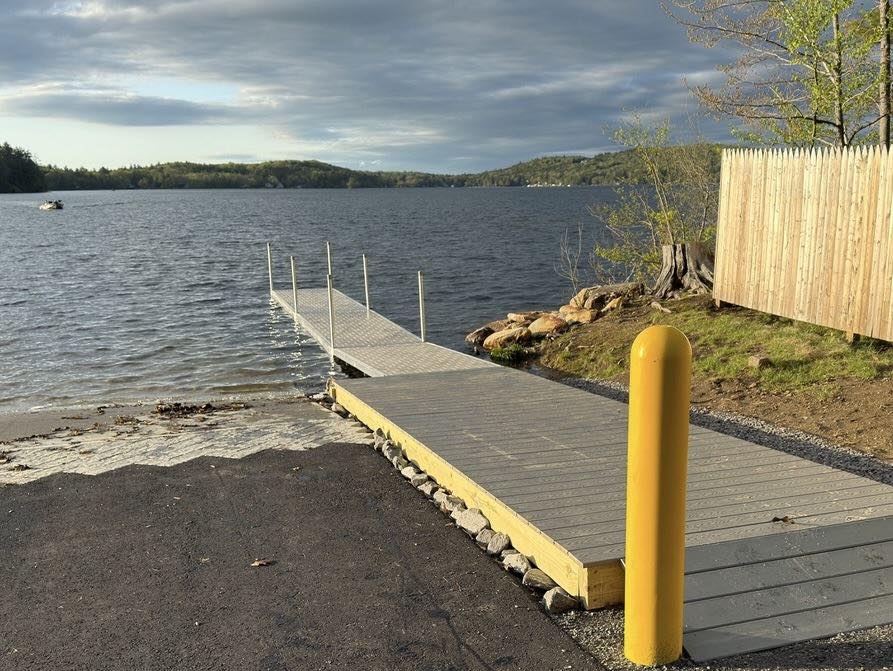
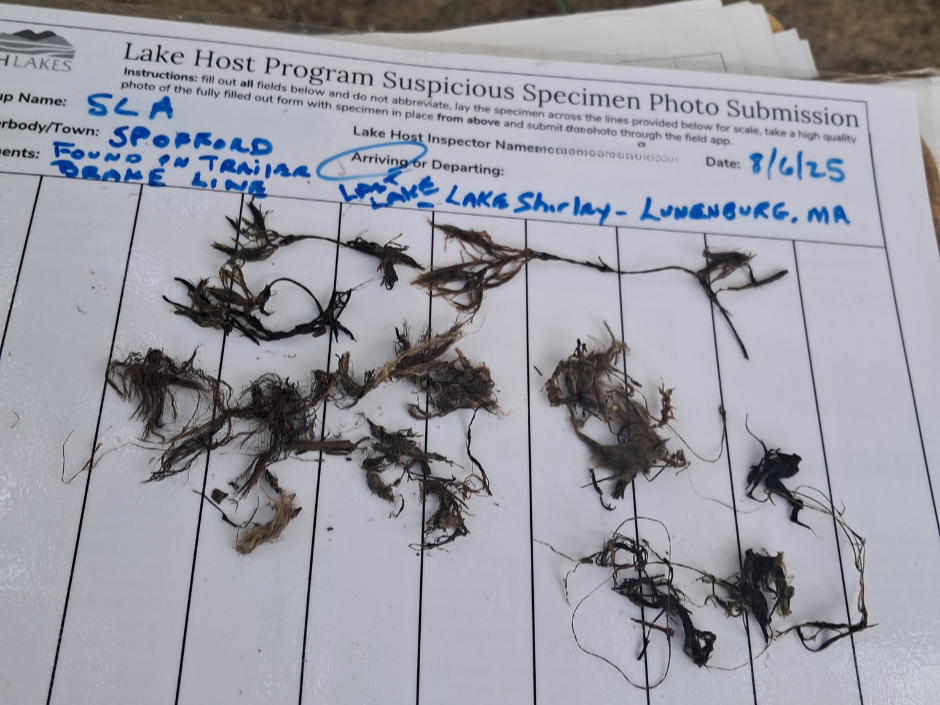
At first glance, the boat arriving at Spofford Lake looked squeaky clean. But Lake Host vigilance paid off.
Through a thorough inspection of the trailer, our Lake Host discovered two sneaky invaders clinging to the brake line: fanwort and milfoil, both aggressive invasive plants.
Just one tiny fragment of either species could have been enough to start an infestation, threatening the lake’s clear waters, native plants, and recreational use.
Spofford Lake currently has no known aquatic invasive species—and thanks to this sharp-eyed Lake Host, it stays that way.
Protecting Progress at Pawtuckaway Lake

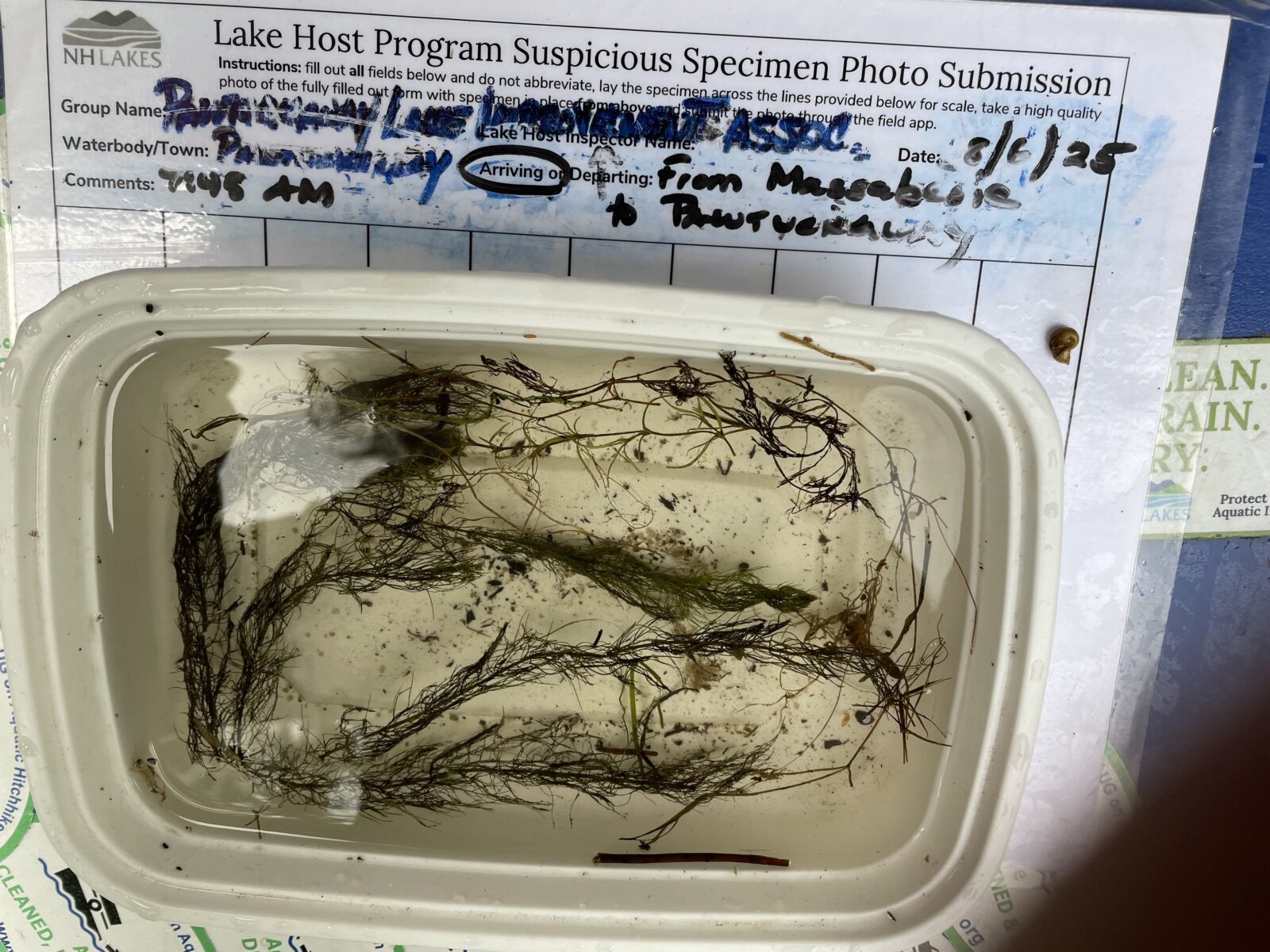
Long-time Lake Host Kathy Jacques made an important discovery during a routine inspection at Pawtuckaway Lake. A boat arriving from Lake Massabesic had multiple aquatic plants tangled in its trailer—including invasive Variable milfoil.
While Pawtuckaway Lake is already battling an infestation of this aggressive plant, the Pawtuckaway Lake Improvement Association has worked tirelessly to manage and contain it.
But every new piece of milfoil that enters the lake threatens to undo years of hard work—making control efforts more difficult and far more costly.
Thanks to Kathy’s careful inspection, this potential setback was stopped before it started.
Zebra Mussel Nearly Slips Into Lake Winnisquam
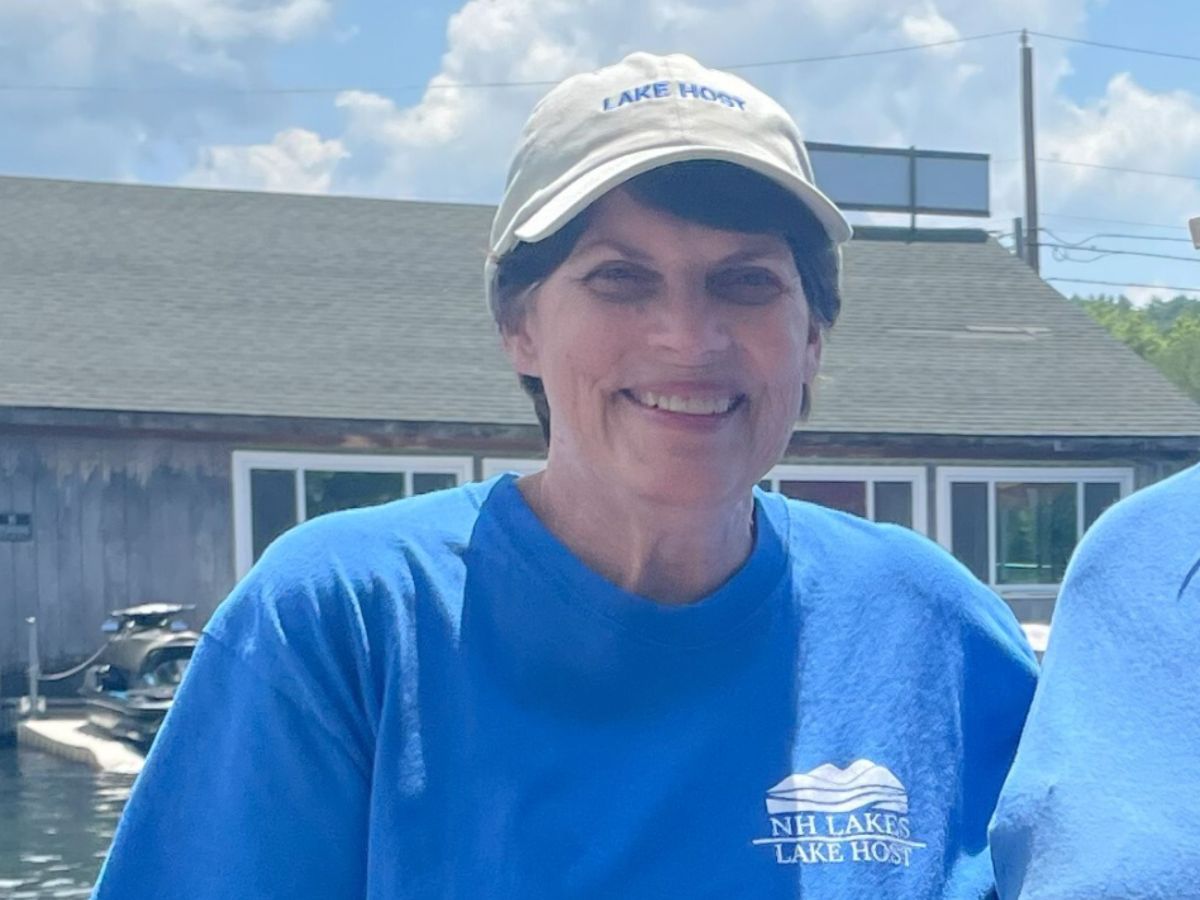
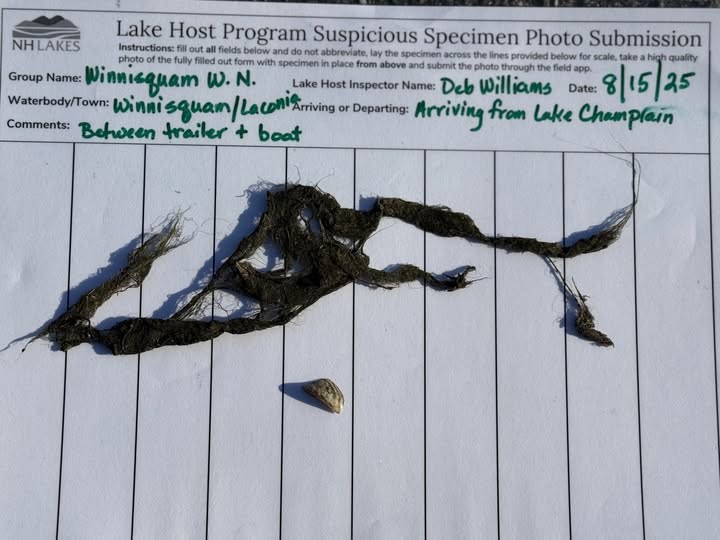
Lake Host Deb Williams was conducting a routine courtesy boat inspection at Lake Winnisquam for a visitor from Lake Champlain when she made a critical discovery. After pulling some tangled plants from between the boat and trailer, she found a zebra mussel—hidden in a clump of filamentous algae.
Zebra mussels may be tiny, but their impact is massive.
They damage boats, clog motors and water systems, cut swimmers’ feet with their razor-sharp shells, and throw entire lake ecosystems out of balance. Worst of all? Once they invade, there’s no effective large-scale way to remove them.
Right now, New Hampshire’s lakes are zebra mussel-free. Thanks to Deb’s sharp eye, they still are.
You Can Be a Lake-Saving Hero, Too!
Right now, nearly 90 lakes and rivers in New Hampshire are infested with invasive species—and some are plagued with up to six different kinds. Once these invaders take hold, they’re incredibly difficult (and expensive) to manage.
That’s why we need you—alongside our dedicated Lake Hosts—to help stop the spread before it starts.
Here’s how you can make a difference:
- Clean, Drain, and Dry your boat, trailer, and gear every time you leave the water. It’s simple—but it works.
- Become a Lake Host! Join our front line of defense and help protect the lakes you love.

